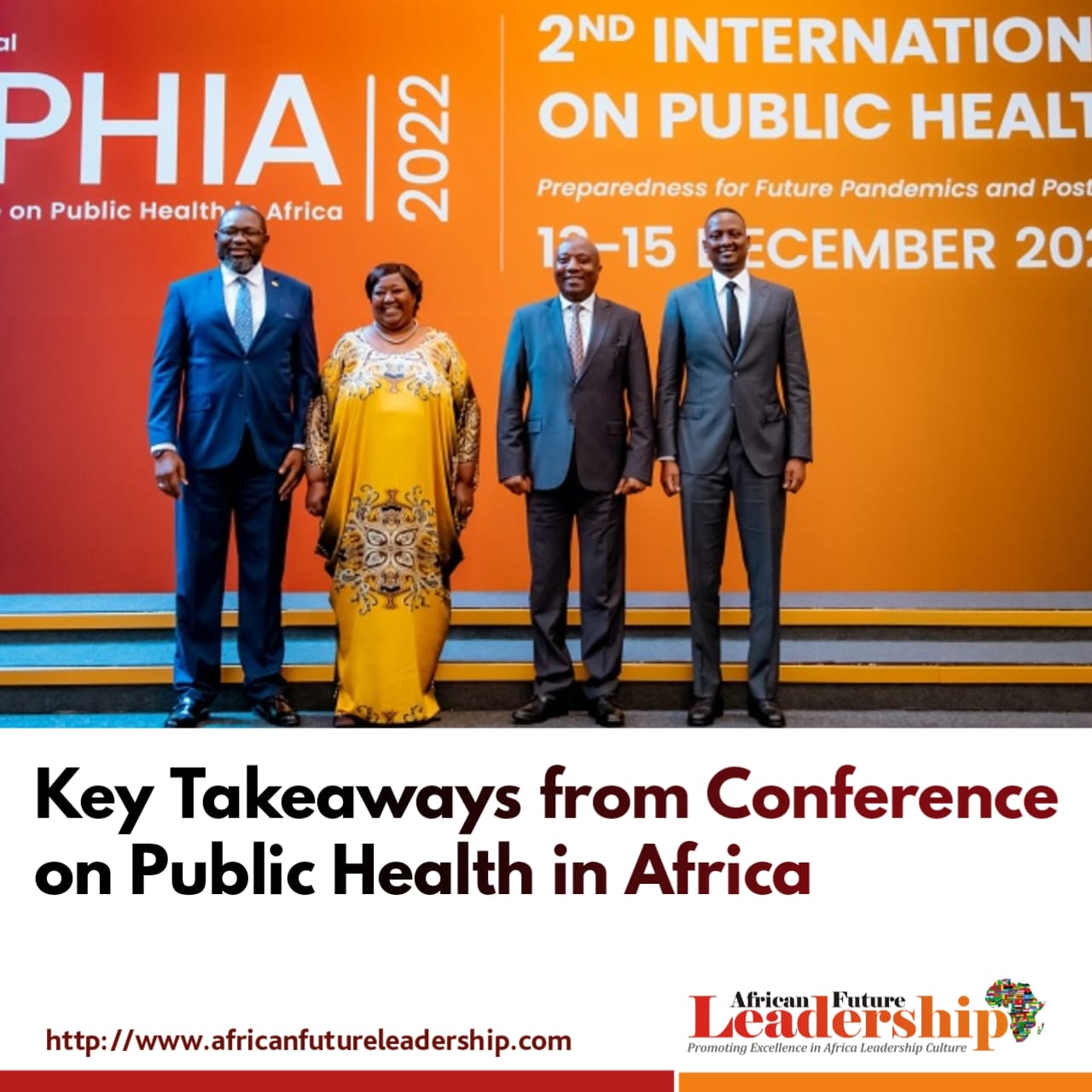Agency Report
Memorably, the three-day International Conference on Public Health in Africa held in Kigali brought together more than 2500 attendees from ninety countries across the globe. Africa represented 87.1% of the delegates, the most by any single continent. Coming behind were Europe and North America with 7.8% and 4.5%, respectively; South America had the least representation.
Significantly, the decisions taken in Rwanda would be crucial in implementing the continent’s “New Public Health Order.” The acting director of the Africa Centres for Disease Control and Prevention (Africa CDC), Ahmed Ogwell Ouma defined it as “a vision that takes Africa from always following others to an Africa that is confident in its own skin.”
Notably, the conference is now behind us, and by next year delegates will reconvene for the third edition in Lusaka, Zambia, to recount their progress towards fostering self-sufficiency within Africa’s health sector. Interestingly, here are four important takeaways from the conference, which will shape the priorities in 2023 and beyond:
READ MORE: FAO’s Urgent Call for Action on Floods in 2022
1. Prioritisation of Africa-centred partnerships
On the conference’s second day, the PANdemic preparedness plaTform for Health and Emerging Infections Response (PANTHER) was launched. The platform will support preparedness and rapid response to emerging infectious diseases, starting with therapeutics and vaccines in Africa.
Prior to the start of the conference, Aspen, a pharmaceutical company, announced a $30 million funding support from the Bill and Melinda Gates Foundation and the Coalition for Epidemic Preparedness Innovations (CEPI) to manufacture routine and outbreak vaccines for Africa.
Currently, only 25.6% of Africans are fully vaccinated against COVID-19, which is below the 70% target set by the WHO and Africa CDC.
To advance medication access, the African Union was tasked to operationalise the African Medicines Agency to complement the Africa CDC.
2. More platforms for indigenous research
The Africa CDC recorded over 1,400 research submissions. Some of the researchers whose abstracts were accepted got funded to attend the conference in person and present their work to an international audience.
Ouma also welcomed researchers to publish their work in Africa CDC’s Journal of Public Health in Africa.
3. Young people are important stakeholders
In the lead up to the international public health conference, the Africa CDC opened applications to recruit young people into its one-year Bingwa Initiative, a programme to boost COVID-19 vaccination in African communities.
During the conference’s opening ceremony, Ouma announced plans to establish an Africa CDC Youth Advisory team to help the organisation engage more youths in the fight against diseases. He revealed that this decision was influenced by the successful outcome of the youth conference held prior to the official meeting. The organisation will announce members of the advisory team in the coming weeks.
4. Clear intention to include more female voices
Women made a strong case for gender equity. The four awards presented in the event all went to women.
First in line was the Africa-CDC-DRASA Awards given posthumously to Stella Adadevoh, Nigeria’s Ebola hero.
The next were the awards given to outstanding researchers. Gorreti Marie Zalwango, a Ugandan researcher, received the award for best oral abstract, while the award for best abstract poster presentation went to Mutia Kehwalla Aza, a researcher from Cameroon.
Rose Leke won the “Achievement in Global Health Leadership” award for her outstanding contribution to the science and public health sector in her home country of Cameroon and globally.
This year’s conference dedicated an entire plenary session to conversations focused on the challenges and roles women play in the health sector. In his closing speech, Ouma said that there is a possibility that during the next conference, a full day would be set aside for women.




